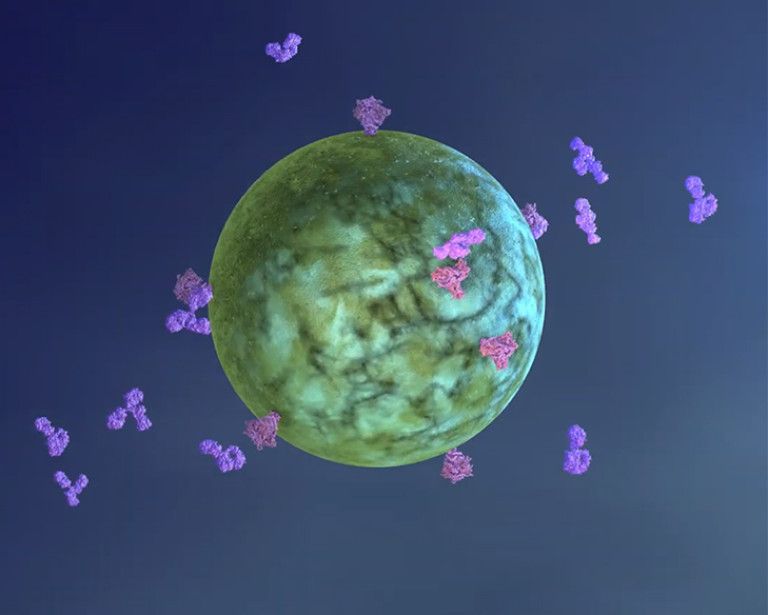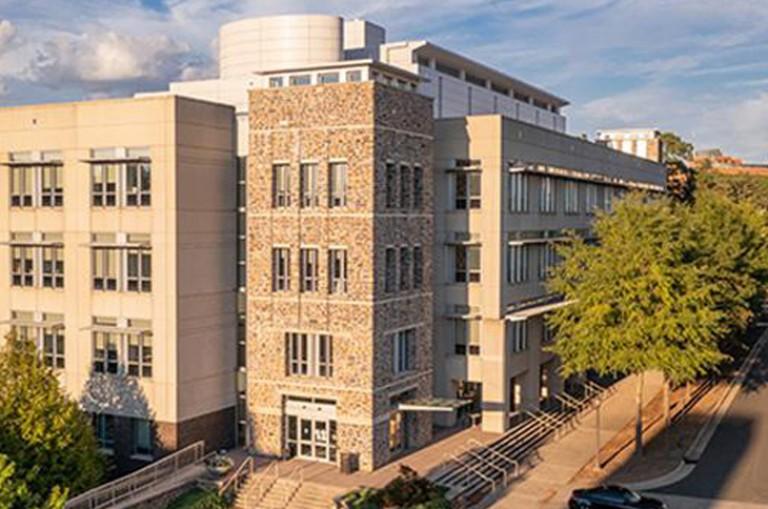Overview
Dr. Rory Henderson is an assistant professor in Medicine at Duke University, the head of molecular modeling and simulation in the Division of Structural Biology at the Duke Human Vaccine Institute, and the Project 1 lead for the Duke Center for HIV Structural Biology (DCHSB).
Dr. Henderson’s lab focuses on understanding how the dynamics of macromolecules of the immune system and its antigenic targets determine the immune response to infection and how these dynamics can be manipulated to guide the selection of a favorable antibody response. We utilize a diverse computational and experimental tool set to interrogate key pathogen and antibody dynamics and use rational design principles to design immunogens and probe putative functional mechanisms.
With Dr. Henderson’s background in molecular modeling and simulation along with biochemical and cryo-electron microscopy (cryo-EM) techniques, he and his lab investigate these details at high spatial and temporal resolution. Together, these methods provide a promising approach toward accelerating the design and characterization of the next generation of vaccine immunogens.
Current Appointments & Affiliations
Recent Publications
Nonstabilized SARS-CoV-2 spike mRNA vaccination induces broadly neutralizing antibodies in nonhuman primates.
Journal Article Sci Transl Med · June 11, 2025 Immunization with messenger RNA (mRNA) or viral vectors encoding spike protein with diproline substitutions (S-2P) were shown to provide protective immunity, curbing the COVID-19 pandemic. However, in light of the emergence of severe acute respiratory synd ... Full text Link to item CiteConformational trajectory of the HIV-1 fusion peptide during CD4-induced envelope opening.
Journal Article Nat Commun · May 17, 2025 The hydrophobic fusion peptide (FP), a critical component of the HIV-1 entry machinery, is located at the N terminus of the envelope (Env) gp41 subunit. The receptor-binding gp120 subunit of Env forms a heterodimer with gp41. The gp120/gp41 heterodimer ass ... Full text Link to item CiteEngineering immunogens that select for specific mutations in HIV broadly neutralizing antibodies.
Journal Article Nat Commun · November 3, 2024 Vaccine development targeting rapidly evolving pathogens such as HIV-1 requires induction of broadly neutralizing antibodies (bnAbs) with conserved paratopes and mutations, and in some cases, the same Ig-heavy chains. The current trial-and-error search for ... Full text Link to item CiteRecent Grants
Interdisciplinary Research Training Program in AIDS
Inst. Training Prgm or CMEMentor · Awarded by National Institutes of Health · 2010 - 2030Structural definition of CD4-induced HIV-1 Env conformational changes required for infection
ResearchInvestigator · Awarded by National Institutes of Health · 2019 - 2030CC* Integration-Large: Scaling Scientific Workloads on Distributed Commodity GPUs and Storage through Campus-level RDMA Networking
ResearchCollaborating Investigator · Awarded by National Science Foundation · 2025 - 2027View All Grants




